|
Mango Lime BBQ Chicken
Ingredients 1 lb boneless skinless chicken breasts, sliced into strips 1 cup cubed mango 3 tbsp freshly squeezed lime juice 2 tbsp extra virgin olive oil 1 tbsp coconut sugar (omit for Whole30) 1/4 cup green onion, chopped 3 cloves garlic 1/4 cup cilantro (leaves and stems) 1.5 tsps sea salt Directions
0 Comments
Angostura, a brand that’s practically synonymous with the cocktail bitters category, is a mainstay on the shelves of everyone from top bartenders to home mixologists around the globe. The bitters brand has been around since 1824 and is a regular feature in popular cocktails like the Old Fashioned, Manhattan, the Vieux Carré, and of course the Angostura Sour. But while the Angostura name is instantly recognizable, there’s a level of mystery surrounding the brand. First, the bitters recipe is an old family secret. In fact, only five living people know it — all of whom have agreed to preserve the secret. But it’s not just the contents inside an Angostura bottle that have long confounded drink lovers. The brand’s oversized label makes it stand out on the shelf and has long been a source of confusion for consumers. There’s a reason for that: It initially began as a mistake. When the brand’s founder, Dr. Johann Siegert, died in 1870, he passed the family business along to his sons Carlos, Luis, and Alfredo. The Siegert brothers decided to enter a competition to get their brand some press, and decided to do a rebrand. One brother designed the new bottle, while another brother designed the new label. The problem? Neither thought to consult the other about how to size them. By the time they realized that the label was too large for the bottle, it was too late to start over; they entered the competition anyway, oversized label and all. Though the Siegerts ended up losing the competition, one judge advised the brothers to keep the design exactly as it was. This, the judge said, would ensure that Angostura bitters would always stand out against the competition (who else would make the same silly mistake?). The Siegerts did just that. To this day, a century and a half later, the label on every Angostura bitters bottle is just a little too large, sticking up around the neck of the bottle. And while this has helped the brand maintain its uniqueness, it has also inspired some copycats. Brands like Forest Floor Foods, Fee Brothers, San Francisco Bitters Collection, and Underberg all produce bottles with oversized labels not unlike that of Angostura. This may simply be a classic case of imitation, or perhaps Angostura — a brand that’s been around a bit longer and is arguably more popular than the aforementioned brands — has influenced the bitters space so much that consumers now associate the entire category with having a large label. Either way, while Angostura started the trend, its large label is no longer one of a kind on today’s market. Unlike most of its imitators, however, Angostura uses its packaging mistake to its advantage; with all that extra label space, the brand provides useful information to its customers. In tiny blue lettering, Angostura’s labels detail the brand’s history, and contain Dr. Johann Siegert’s signature, a product description, product ingredients, and more — some of which is written in multiple languages. Angostura sure does know how to make a bitter situation into something sweet. Source: Katie Brown, Vinepair.com An article about "Doubles" - how they're made, how they taste, etc. to someone not born on Trinidad and Tobago. To read the story, click here . Or copy and paste this URL into your browser
http://www.bbc.com/travel/story/20210526-doubles-trinidads-favourite-street-food Matelot nutmeg farmer John Lewis reaches for a fruit on the nutmeg tree. The fruit splits open and the seeds are dried to dry to produce the beloved spice. - Photo by Angelo Marcelle At the time we met him, Lewis was preparing about 150 pounds of nutmeg to be dried for sale.
“I have at least 20 nutmeg trees and I buy...nutmeg from estates around the community. I carry most of my nutmeg into Port of Spain,” said Lewis. Although he's an emergency technician with the Eastern Regional Health Authority, Lewis produces nutmeg as a source of extra income. He also has a passion for it. Growing nutmeg isn’t simple. Firstly, there must be a male tree planted next to a female tree. The female tree, which is the flowering tree, will not bear the fruit from which the nutmeg seed is obtained if a male tree isn’t nearby. The fruit is allowed to mature and split open, and the nutmeg seed will fall to the ground. The seeds are collected and the mace – the red coating around the seed – is removed. The seeds are then dried, giving us nutmeg as we know it. The mace is also sold and used for a variety of purposes. When you think of nutmeg production in the Caribbean, it isn’t uncommon that the first place you think about is Grenada. But did you know that the spice is also grown in a village along Trinidad’s northeast coast? Matelot, which is French for sailor, is known for its scenic landscape and abundant fishing. However, the village also has a thriving agriculture sector with nutmeg being one of the mainstay crops. On a recent visit, Business Day met with 56-year-old nutmeg farmer John Lewis to learn more about nutmeg production. For the past ten years, Lewis has grown nutmeg on approximately one and a half acres of land. To supplement what he grows, he often buys the spice from other growers in the village. But, Lewis explained, nutmeg seeds don’t always drop in abundance. Throughout the year, nutmeg trees produce seeds at high and low rates. For example, Lewis collects most of his nutmeg seeds in December and January. His harvest is smaller from February to May. Praedial larceny is a major challenge nutmeg farmers face and, according to Lewis, it has been difficult to effectively deal with the issue. The farmers also complain about inadequate infrastructure. Lewis said access roads to estates in the community have not been properly maintained which has led, in some cases, to estates being totally abandoned. “The access roads to the nutmeg estates are not being properly maintained. Years upon years we have been complaining. People have been complaining about access roads here and nobody seems to take agriculture here seriously.” Some farmers don't have proper land deeds and are not regularised, therefore they cannot register for a farmer’s badge. Without proper regularisation, farmers are not able to seek government support for their activities which could be beneficial to boosting agriculture in the village. Lewis intends to continue farming and is getting his 22-year-old son involved. His son recently started raring livestock and is caring for a few pigs. “In Matelot, it’s quite easy to live because you can eat a plantain and go on the bay to get fish. So, in terms of us (in Matelot) feeding ourselves, we can be about 60 to 70 per cent assured about that,” Lewis said. He also grows plantain, cocoa, and short-term crops. Calling on the Agriculture Ministry to provide greater support for agriculture in the village, Lewis said this move can not only be beneficial to the village but also the entire country. He would like to see the implementation of skills training programmes in the village to teach young people about agriculture and fishing. With there being a number of unemployed young people in the village, he thinks actively engaging them in activities like agriculture can provide them with a source of income. It would also stem the exodus of people out of the community to find jobs elsewhere, which he said has already been happening. He said, “We need people from the ministry to come in and support the small farmers here (in the village). Government have to pay more emphasis on the small farmers because we are the people who can build this country. They always say that a country that can feed itself will be a wealthy country. We must be able to feed ourselves.” Source: Newsday, April 22, 2021 The origins of Neale’s Sweet N’ Nice ice cream date to 1940, in San Fernando, Trinidad and Tobago. Charles Alfred Neale biked around the city during long summer days, selling his one-of-a-kind coconut ice cream recipe — made with fresh and locally sourced ingredients, a “premium” coconut milk mix and no artificial flavours.
The extra creamy consistency and generous proportions led to an explosion of demand for his premium ice cream and it soon became a household name. More than 80 years later, his family’s commitment to honouring his legacy has landed Neale’s Sweet N’ Nice on the shelves of major supermarkets like Metro, No Frills, Sobeys, and Foodland in Ontario, Quebec and British Columbia, keeping Neale’s recipe alive long after his death in the late 1980s. Neale’s is one of many businesses successfully cementing a platform for ethnic flavours in Canada for generations to come. In 2013, cousins Andrew McBarnett and Stafford Attsz, were reminiscing about their grandfather’s glory days selling ice cream. They approached their aunt, Neale’s daughter, Rosemarie Wilson, who knew the recipe and would often serve it during family reunions. Wilson eventually became a co-founder and primary producer in Neale’s Sweet N’ Nice, which in the beginning was an entirely do-it-yourself type of endeavour based in Oshawa. “We started by purchasing an ice cream machine, printing out labels, getting the entire family together, and just wrapping containers for a week,” recalled McBarnett. “I think overall, we all had the same vision: to bring premium homemade Caribbean flavours that just weren’t available before in the Greater Toronto Area.” Early on, the ice cream was sold in independent ethnic grocery stores in the GTA. In 2015, the company earned a spot on CBC’s venture capitalist show, “Dragons’ Den.” Though no deal emerged from being on the show, the publicity served as Neale’s official “coming out” in the Canadian dessert game. Wilson was initially unsure if their ice cream business would fare well in Canada, but as the brand, which features flavours such as coconut, mango, guava and passion fruit, started hitting more shelves, she was amazed by the support that Neale’s received. “I always knew there was a strong Jamaican community in the GTA, but I had no idea how large a Trinidadian contingent we have,” she said. “I was getting personal calls at home from people who just wanted to talk. They’d tell me: ‘I remember you from San Fernando, yes, yes, yes. I just want to talk about the common heritage and the common bond!’ ” She recalled a recent call from a Trinidadian gentleman who found their product in Sobeys and described his immediate sense of recognition and pride. “That kind of connection inspires you to do more and to keep on going,” Wilson said. Starting in 2018, Neale’s began moving into grocery chains mostly in Ontario. An expansion to stores in Montreal and Richmond, B.C., soon followed. Last year began with plans to increase Neale’s national presence and debut in Loblaws stores, but the pandemic set the debut back and introduced new issues for the founders. McBarnett and Wilson soon discovered “their supply chain was broken” — they could no longer source their natural ingredients on the timelines they were used to. Wilson explained how because of halts in trade, several suppliers could not sell their ingredients at the same pace as before. To combat this, Neale’s started manufacturing according to availability of products instead of demand. “For example, if it will take me six weeks or two months to get something, then when we actually get it, we say, ‘we might as well increase how much we manufacture,’ ” Wilson said. Neale’s went from manufacturing 200 cases every four weeks to a 1,000, which may have worked to its advantage, as despite an ongoing lockdown, the demand for Neale’s ice cream surged. This was in part due to more consumers adopting a buy-local approach during the pandemic and in part due to increased sentiment to buy from Black-owned businesses after George Floyd’s death led to a global reckoning on anti-Black racism. “I thought about how when I started Kingsdale, and I went to every institution in this country, and they all turned me down,” Hall said. “Eventually, I was able to get someone in a bank who looked like me, believed in me and was able to pull some strings to help me. “I just knew I had to help.” Wilson and McBarnett often worry about their business becoming “boxed in.” Though the brand is rooted in offering a taste of their childhood and Caribbean heritage, the ice cream resonates with people from all over. McBarnett says they have had people from places like Portugal and South America, tell them the ice cream reminds them of home. “This is way beyond the Caribbean,” he said. “It’s wherever these types of fruits are. Like Malaysia or wherever people are tasting our ice cream and remembering their childhood.” Rhythm Sachdeva is a breaking news reporter, working out of the Star’s radio room in Toronto. Source: Toronto Star, April 12, 2021 Young farmer Kyle Rampart lies on a bed of watermelons he grew with his family in Manzanilla. - Young farmer Kyle Rampart has a passion for planting and spends every spare moment on his family's parcel of land at Manzanilla. Unlike his peers who are often glued to cellphones, tablets and other electronic devices, the 12-year-old isn't afraid of getting his hands dirty or sweating under the sun. Kyle a standard two student of Mayaro Government Primary School, not only grows healthy crops of different varieties of watermelons, he also practises a healthy lifestyle by staying away from certain snacks. "I like farming, it is a dirty job, but food makes people happy, and I like to be happy too. I play a little, but I prefer to run through the land," he said during an interview at the garden on Thursday. Kyle, who lives in Paradise Village, Mayaro, may be small in stature but his ambitions are huge. Every weekend, evenings after school, and even on festive holidays he can be found on the land preparing the land, planting crops or helping harvesting. Not only is he willing to learn from his father about farming, he too educates himself about new methods of planting and caring for crops and willingly shares his knowledge with customers. Young farmer Kyle Rampart with a tray of watermelon seedlings ready to go in the ground.Photos by Marvin Hamilton. - I often have to explain the different types of watermelons we sell at my father's business. We have red, yellow, blue and orange varieties. I can spot the melons by looking at the skin." He believes in the slogan plant what you eat and loves his mother's cooking, especially her watermelon smoothies. "When you plant, you know what you're eating. When you buy food you don't know and they can put all kind of things in it and you might get sick." On a broader scale, Rampart thinks this country can grow more food to help reduce the number of products it imports and plans to become a full-time farmer in the future. "I love agriculture and I think the Minister of Agriculture Clarence Rambharat has a lot of work to do. There is a lot of land for me to plant, somebody has to get dirty, we don't need a minister if it don't have food." Kyle, the eldest of three siblings, has hope that a day will come when he and many other farmers can plant enough to feed the country and reduce the food import bill. He believes farmers can produce more. His parents, Vashtie and Curtis, are proud and happy with their son's natural caring and helpful spirit. Curtis explained, "Kyle is a very had working child, we do have some challenges with his academics so my wife, Vashtie, spends extra time with him so that there is a balance. His grades at school fluctuates between B and C." He said his children's education was their first priority and thinks a combination of academics and first-hand knowledge of farming "is priceless." Curtis said his eldest son began showing an interest in farming from a young age and was a natural leader. So much so, he can leave his son to supervise the workers on the farm under the guidance of his wife. He encouraged other parents to support "whatever is their child's passion and help them find the balance." "Whatever is their desire, the passion will follow." Kyle's advice to other children who may be thinking about getting into farming was that like many other jobs it was hard work. "You must first love it, don't be afraid to get dirt on your hands." In addition to farming, Kyle loves sports, such as football and hard ball cricket which he plays with his father, whom he described as his role model. Source: Newsday, March 14, 2021 Kyle Rampart and his father Curtis check watermelon seedlings for planting at the family's garden. -
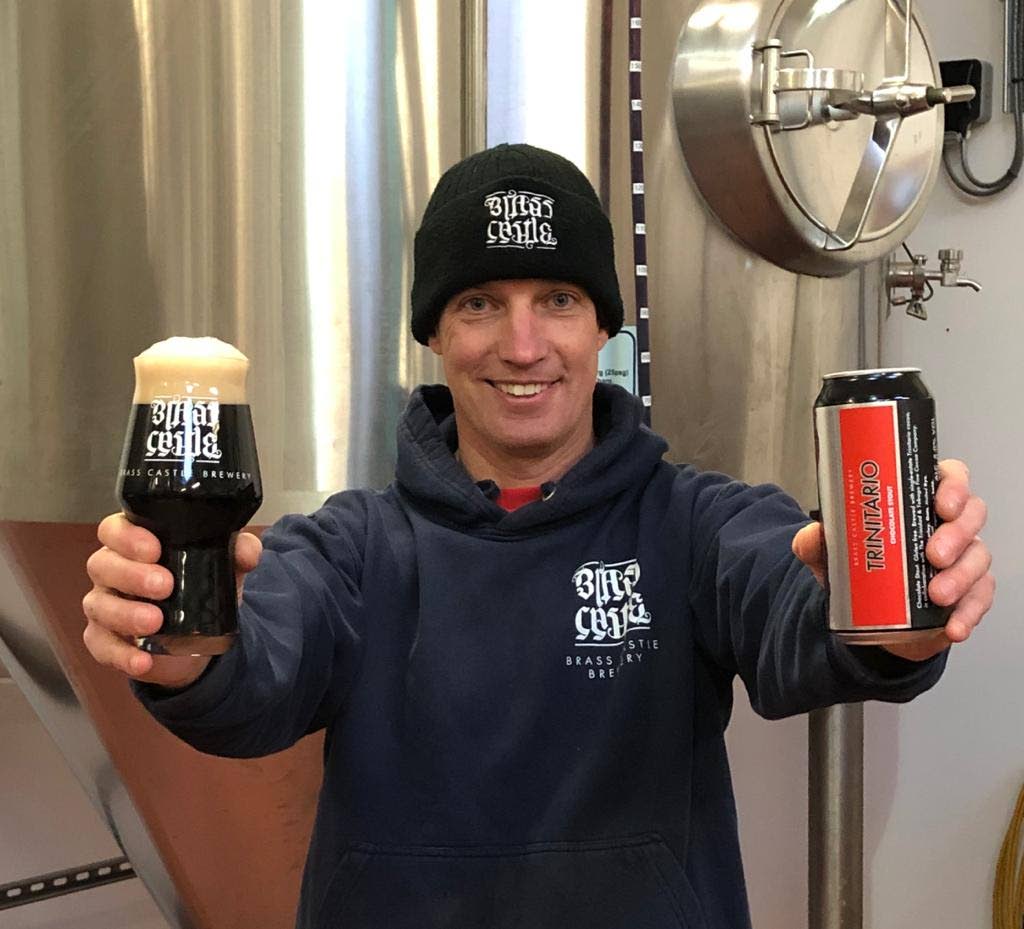 English brewer Phil Saltonstall was so impressed with TT chocolate that he has brewed beer out of trinitario cocoa beans. - On a recent trip to Trinidad, English brewer Phil Saltonstall was introduced to some of the best tasting chocolate in the world, made, of course, from trinitario cocoa beans. So, naturally, he did what he does best – he made a beer out of it. “If you’re a brewer you look for flavour pairings in the world that exist already and you just put them in the beer,” Saltonstall told Business Day in a telephone call last week. The first batch of Saltonstall’s Brass Castle Brewery’s Trinitario chocolate stout was canned just over two weeks ago and it’s already proved popular. “I have to ringfence a couple so I can send it to Trinidad or else it’ll be gone,” he chuckled. The beer is, of course, named after the eponymous cocoa variety that originated in Trinidad in the late 17th century. Trinitario, a natural hybrid of the forastero and criollo varieties, is considered one of the world’s finest-flavoured cocoas. The Trinidad Fine Cocoa Company, with which Saltonstall consulted, advised him on using trinitario cocoa shells and nibs to enhance the already chocolatey flavours that naturally occur in dark beer. (He was introduced to them through his wife, British High Commissioner Harriet Cross.) “We have done a chocolate beer before, but we’ve done it with cocoa powder – and probably not very good cocoa powder. It was meant to be like a Black Forest gateau, with cherries and chocolate. It was really nice and chocolatey, with the cherries, and that was cool. “I have since been educated to the fact that Trinidad has the best chocolate in the world, and making that connection with TT fine cocoa caused me to understand that I can use cocoa better – that I shouldn’t just be using powder, I should be using cocoa nibs and cocoa shells. So they effectively enhanced my process. "And they also kindly explained that Trinidad has the best chocolate in the world, and if I want to have a real chocolate beer (this is the stuff to use).” Different types of grain and malt (sprouted grain) can give some very gentle chocolate flavours, Saltonstall explained. “You have to look for them, but they are there. What most brewers do is, they will add a chocolate flavouring or essence or something like that. But when I had the option to have some of the best chocolate in the world, that’s obviously (better).” Brass Castle tries to make its base as chocolatey as possible and then overlay that with the fine cocoa nibs during the fermentation and conditioning phases. “The finished beer is very luscious and chocolatey and doesn’t have any of those fake aspects, and that’s all testament to how good the cocoa and chocolate that we’ve used (are).” Beer is made from fermenting cereal grains. The first step is creating a mash, where the grains are mixed with water to form the base liquid and release the sugars that will eventually ferment. Usually, rice husks are used as process aid, preventing the mash from turning into a porridge consistency that needs to be thrown out. Brass Castle Brewery's Trinitario chocolate stout, made, of course, from TT's trinitario cocoa beans. - But, Saltonstall was pleased to discover, cocoa shells did the same job and imbued the mash with a rich chocolate flavour.
“It’s cool, because I didn’t realise that cocoa shells are just kind of thrown away because they’re no good for chocolate, but actually there’s still flavour there, so they are quite good in the mashing process and brewing.” The next phases – fermentation and conditioning – are when the nibs, shelled cocoa seeds broken into pieces that have a deep, rich cocoa flavour, are added to the mix to really bring create that chocolatey, beery goodness. Brass Castle is based in the town of Moulton in North Yorkshire. A few miles away is the city of York, which Saltonstall said has a history of being in the chocolate trade. “I talked to chocolatiers in the town and they are totally thrilled that we are doing something with trinitario cocoa nibs, because they get it. They know how good the nibs are and they know that it’s in relatively short supply. "It's lovely to see them get enthusiastic and passionate about it, and hopefully drinkers will get the same effect.” Saltonstall has not yet tapped into the huge Caribbean diaspora in the UK – covid19 restrictions have made that difficult at the moment, so the usual avenues, like bars, restaurants and even Notting Hill Carnival have been restricted. He’s interested in looking into it, though, and even directly reaching out to some high-profile Trinis and sending them some of the beer. “In normal times this would be obvious and it would be nice to get the feedback from the diaspora.” Brass Castle is a small craft brewery, so it produces about 4,000 440ml cans of beer at a time. He’s all but used up his initial 25-kg supply of shells and nibs in production, so he’s actively researching how to import a supply. “I was lucky because I was able to transport this back from Trinidad myself, but I’m now talking to people who can ship it. I’m told shipping is pretty straightforward because (despite covid19 restrictions) commerce is still working and goods are still transiting. So my understanding is that getting hold of some more is not problematic. "Of course, everything is slightly more difficult now but getting more nibs and shells is not (impossible).” He’s excited to start back production, though, and already envisions the beer being a regular offering. It’s on sale at the brewery and online, as well as some shops. It also proved to be a surprise Valentine’s Day hit, with lots of orders coming in before February 14. He also hopes to be able to send some soon to Trinidad – and maybe get a new supply of nibs in return. And as far as he’s concerned, even though some people might see chocolate stout as a dessert drink, the beer will go with anything. “People drink and eat what they like to eat. I know there’s a whole host of people who would want to drink it all the time.” The labelling. though, is reminiscent of a chocolate bar in the colours of the TT flag. “I might change the packaging at some point, but I hope that the name and the look are simple enough for people to understand quickly what it is, but also for people who know to appreciate that it’s a Trinidadian beer with Trinidadian ingredients.” Source: Newsday Feb 2021 |
T&T news blogThe intent of this blog is to bring some news from home and other fun items. If you enjoy what you read, please leave us a comment.. Archives
April 2025
Categories
All
|
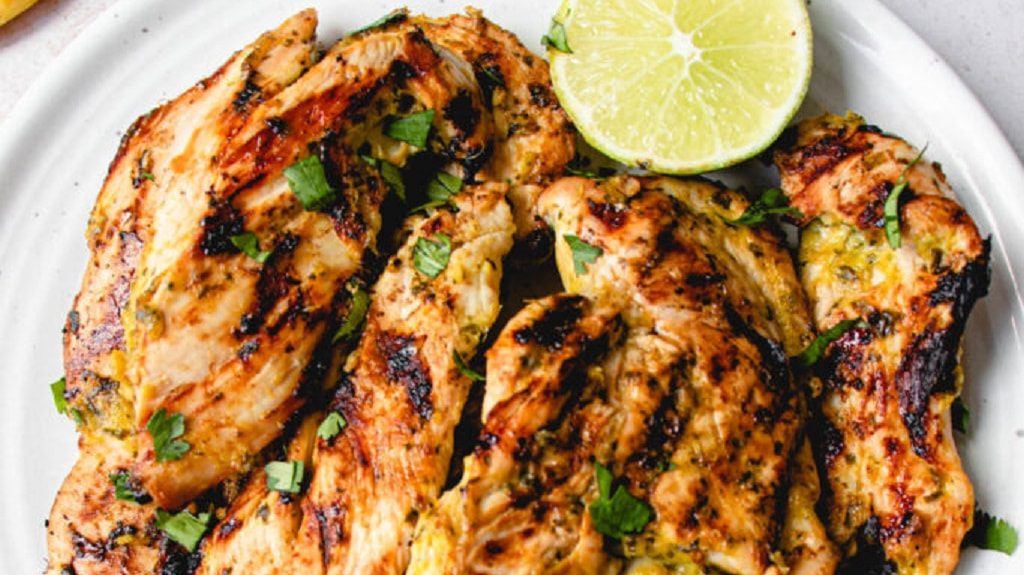
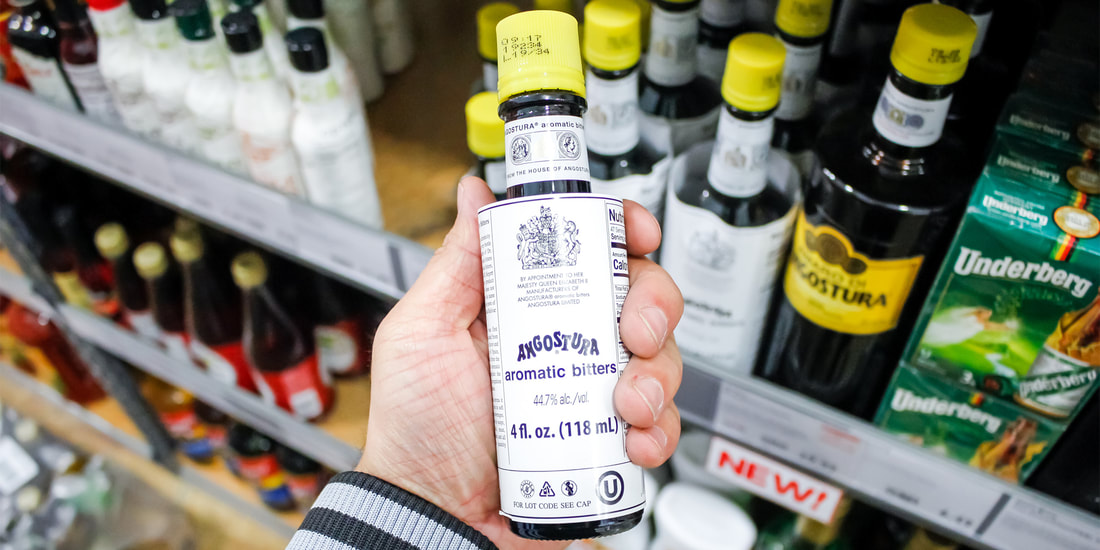

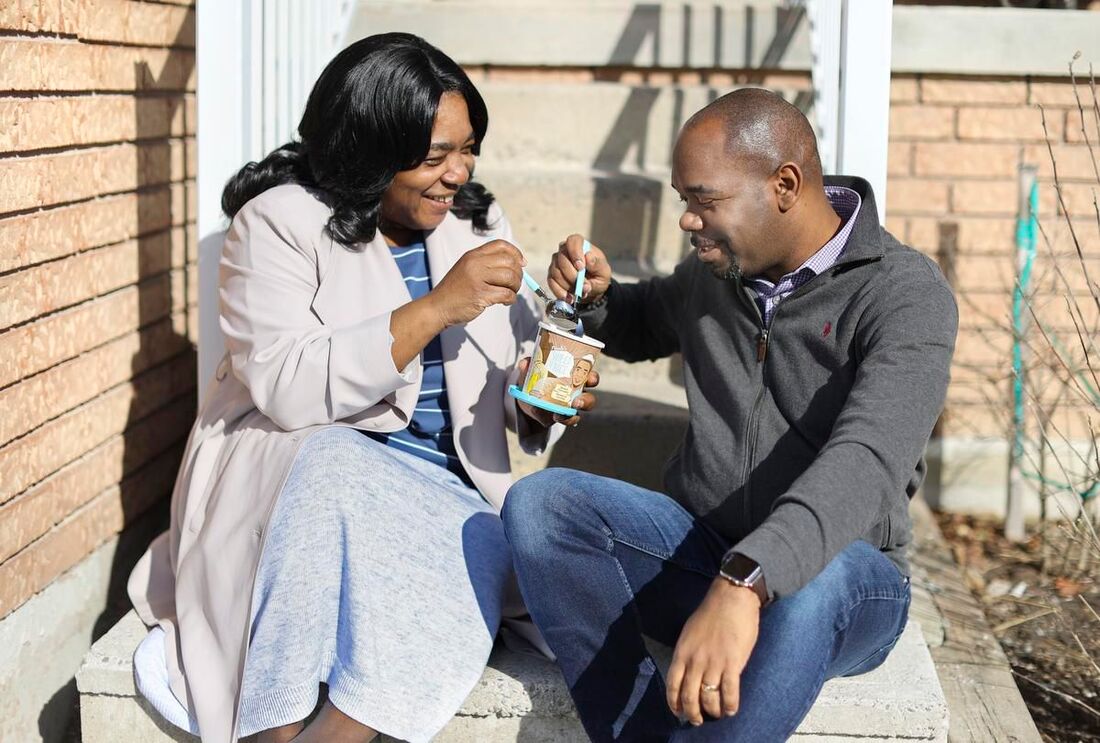

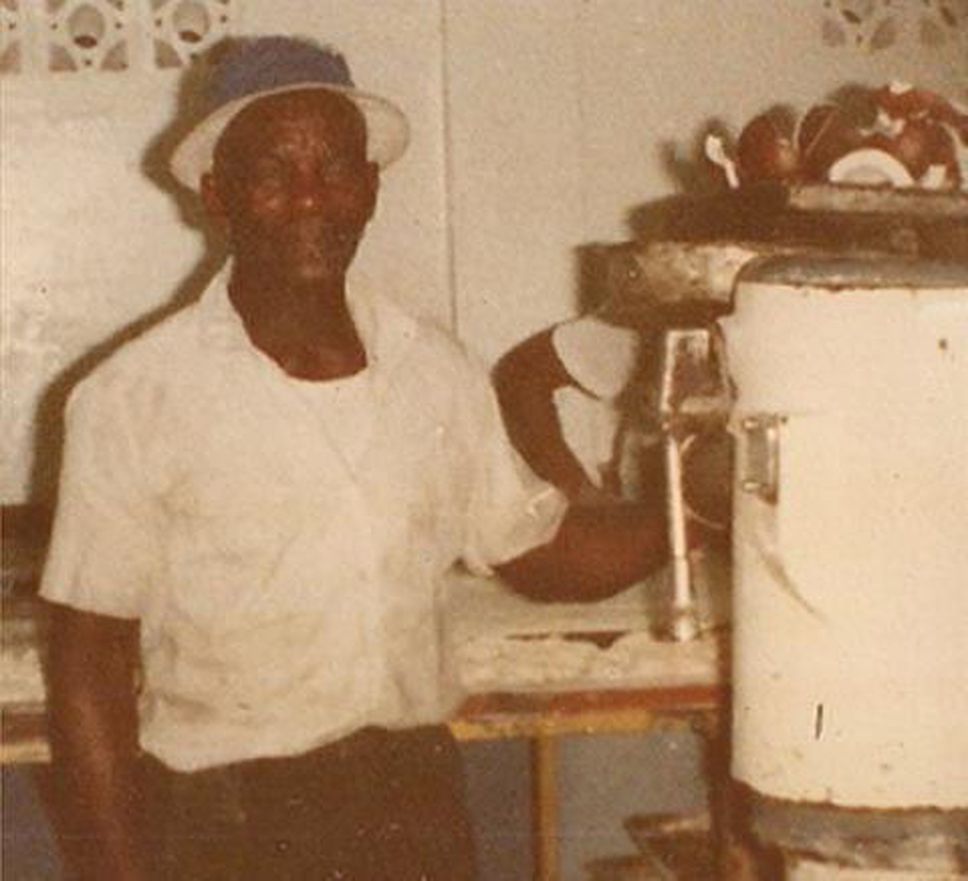

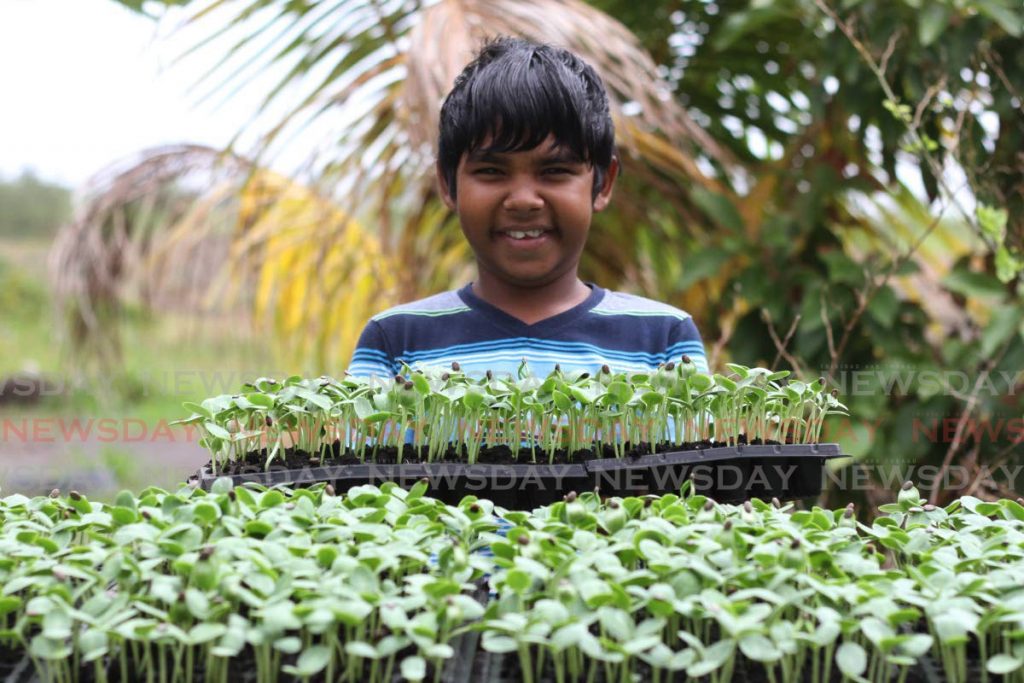
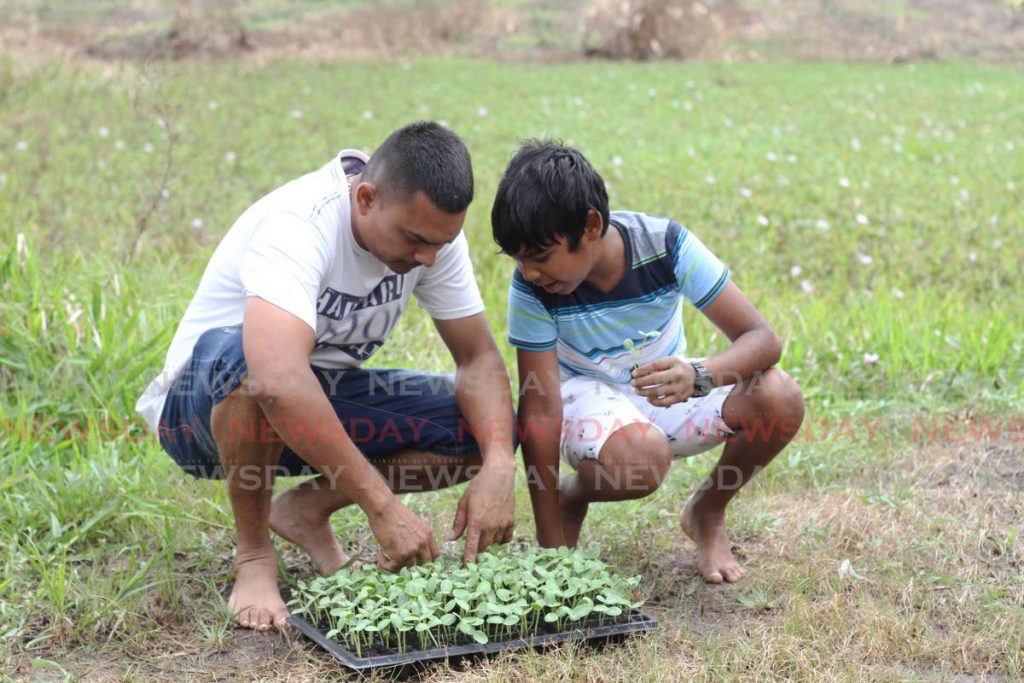
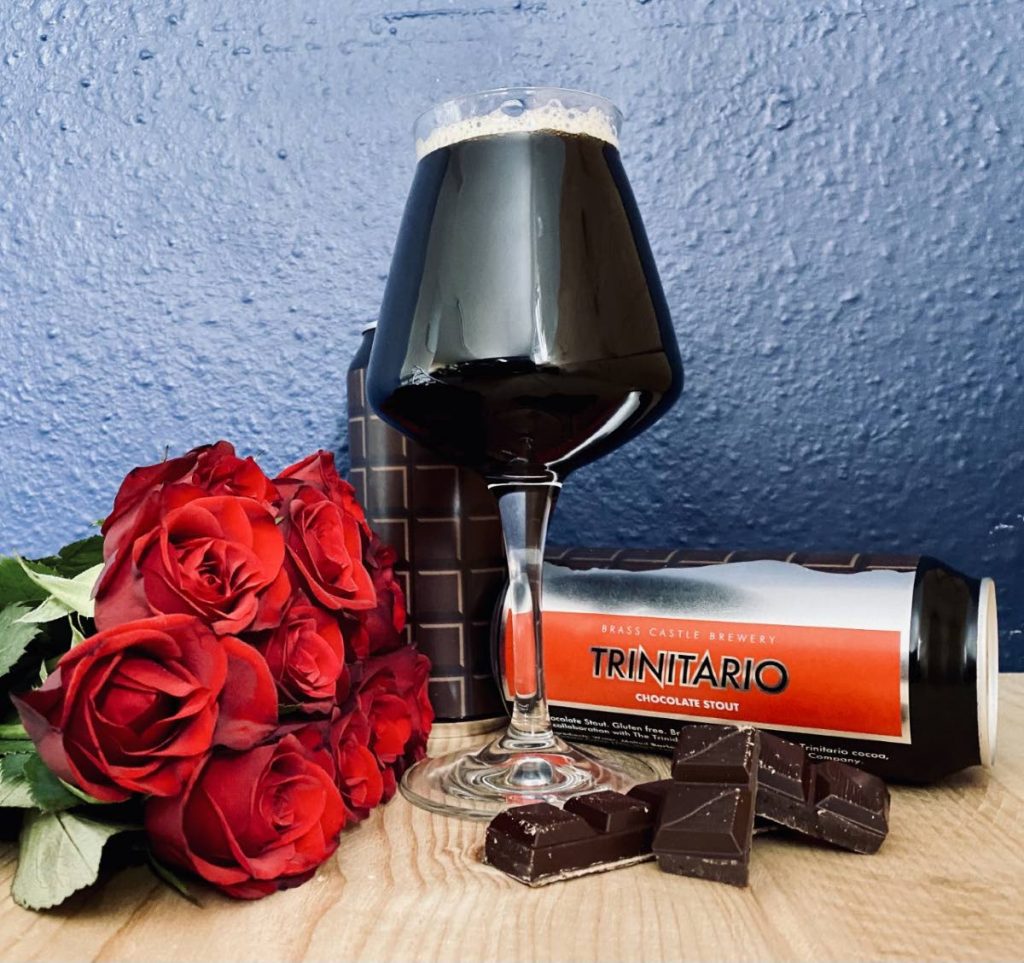

 RSS Feed
RSS Feed